Review for La Folie D'Amour- The Xavier Dolan Collection
La Folie D'Amour- The Xavier Dolan Collection
Director: Xavier Dolan
"When i try to imagine what the worst mother in the world is like, I can't imagine one worse than you."
Hubert, "I Killed My Mother"
Introduction
Quebec native, Xavier Dolan is only 24 years old. Strangely familiar to many thanks to his brief cameo in the sensational Martyrs, the former child-actor is also becoming increasingly known for his work as a writer and director. His debut feature, I Killed My Mother, dazzled at the 2010 Cannes Film Festival, which has been particularly receptive to his unique, highly stylized output.
Dolan's most recent work, Lawrence Anyways, was a winner in the Best Actress category in the Un Certain Regard section of Cannes. Perhaps should have been a candidate in the main section, after all, Dolan is already, one of the most distinctive filmmaker of his generation.
La Folie D'Amour collects his three directorial efforts thus far, in a package that accompanies the release of Lawrence Anyways in the UK on DVD (the latter also being available to buy as a standalone release.
Lawrence Anyways
The premise of Lawrence Anyways is fairly simple. Lawrence is a man who decides to go through with a change of gender, despite having a life that is seemingly rather rosy on the outside. His girlfriend, Fred, is hugely supportive, but the life change that he goes through changes and challenges their relationship.
As the film progresses, we really run the gamut of emotions, through the high-points of his finally finding some sort of comfort in hs own body and identity, right down to the misery of rejection and isolation. This is by no means an easy journey, and stylistically, the bravado and unashamed ambition of the story is clear to see, as Dolan takes us through a decade of turbulence in the lives of two people. It's brash, confrontational, occasionally cringe-worthy, and often breathtaking.
Individual moments certainly do absolutely exhilarate, An early scene in which Fred and Lawrence experience a nightclub, followed by some jovial groping in the street, is both electrifying and tinged with energy. The aftermath of a pillow fight looks absolutely stunning, as does a walk through the snow filled with an unexpected burst of colour.
These instances of course, are helped in no small part by a genuinely fabulous soundtrack, something that has fast become a trademark of Dolan. When Lawrence first struts through the school halls in his garish ladies suit, proudly boasting only a touch of make-up as his facial decor, he's accompanied by a pulsating electro-dance tune. It's one of the most energetic, alluring moments in recent film history.
Likewise, the movie also offers moments of heartbreaking conflict and chaos, wherein the players isolate themselves from one another in devastating fashion. A confrontation in a car-wash, and most of all, a horrific explosion of emotion in a cafe that changes the course of the live of our main characters are devastating snippets of cinema.
The film does threaten to drift on occasion, especially around the middle of its gargantuan running time. At 159 minutes, this is a long character study. It does feel at times as if there is more than one film at work here. It's at once an emotional rollercoaster ride between two characters, but occasionally, it's also an uplifting, feet-stomping message picture, and less frequently; a downbeat depiction of victims of circumstance. Sometimes these elements don't sit well- there are moments in the second half of the picture where amidst the less happy times, the near-three hour running time begins to make it's presence felt.
Even at these slightly rambling instances, the movie picks up every time Suzanne Clement is on screen. Hers is a performance of genuine power, and it is the chemistry between she and Mevil Poupaud that really carries the movie. Any time it threatens to drift into inconsequence or the viewer's attention threatens to drift, and their sizzling synergy draws one back in. In fact, for this reviewer's money, Clement's performance is one that probably eclipsed that of any other female actor last year, bar perhaps Anne Hathaway's supporting actress turn in Les Miserables.As Lawrence's mother, Nathalie Baye is also fabulous throughout, in a role that could easily have resulted in exaggerated, cartoonish gestures. Instead she serves up a mixture of pathos and confusion, helping to balance out several instances that could have veered towards parody.
What really stands out about Lawrence Anyways however, is in its ability to stick with the viewer. Between the complex tale at the centre of it, or the striking images, there is much to admire. Certainly, warts and all, this is among the most visually stunning films of 2012.
Extras
Lawrence Anyways offers a very disappointing array of extras, restricted to only a theatrical trailer, and an interview with the stars. This runs nearly fifteen minutes, and is pretty insightful. It would have been very worthwhile to have heard contributions from Dolan himself though.
I Killed My Mother (2009)
(J'ai tué ma mère)
Dolan's debut film has earned a huge reputation for itself, largely due to the reception that it received at the 2010 Cannes Film Festival. Opening with a powerfully stark confession by Dolan, in startling black and white, establishes this film as twitchy, thoughtful, and very serious. He was clearly out to impress, and establish himself here.
Dolan also stars, playing Hubert, a gay teenager who endures a relationship with his mother that suffers through contrasting and conflicting feelings towards her. He juggles his own life experiences with his almost twisted amalgamation of love and hatred that he expresses towards his mother.
As Hubert, Dolan is one angry young man, utterly filled with contempt. He rips apart the aspects of his mother's behaviour that he finds aggravating, taking his irritation to disproportionate levels. It's easy to recognize his frustrations, we all share them in the behaviour of others that does not match our own. But Hubert's contempt characterizes him as an extremist, intolerant and full of rage. Disturbingly, this film is somewhat semi-autobiographical! An early argument between the two over dinner is deeply uncomfortable, etched with familiarity, but laced with excess and petulant adolescent fantasy.
Hubert's mother isn't perfect by any means though. Perhaps she's been ground down by abusive behaviour and hatred, but she exudes a tragic ambivalence. Her attitude appears to be one of disinterest, as she coasts through an unsatisfying existence, during which her son constructs fantasies of murdering her.
"Do you like pink socks, motherf***er?" She rages at Hubert's Principal, in animated fashion. There's no question, she's an enormous presence, occasionally bursting with wit behind the sad veil, her anguish manifesting in all sorts of detachment. While Dolan is impeccable as Huber, Anne Dorval is really the star of the show here as his mum. She conveys moments of insane frustration, but is equally as believable being just as frustrating herself. It's a colossal performance.
Some will find the black and white interludes somewhat "Pretentious", others will take issue with the uncomfortable silences, and almost clinical aesthetics. This is a relationship as if carved open on a surgeon's table, for all to see. It often keeps the viewer at an emotional arm's length, but is never less than compelling. Similarly to Lawrence Anyways, Dolan frequently serves up genuinely stirring scenes amidst his tentative probing. Here, there's a spark between Hubert and his teacher (Suzanne Clement), in a touching scene in a diner. Later, Hubert is under a drug-fueled influence and we share in his ecstasy in a wonderfully realized moment in a night-club. A slice of Jackson Pollock-inspired painting turned sexual triste is equally as arresting.
More condensed though than his most recent film, I Killed My Mother is memorable not for those breathless moments, but for its bizarre, uncomfortable portrayal of a bizarre, uncomfortable relationship.
Heartbeats (2010)
(Les Amours Imaginaires)
The second film in the Dolan cannon, very much slots neatly into the space with which it occupies without being being quite as distinguished as the other films. A tale of two friends, Marie & Francis, they both become obsessed with the same boy- Nicolas, whose motivations and sexuality are ambiguous. This puts a strain on their pre-existing relationship, as they struggle to deal with each other's attempts to woo Nicolas, and what they perceive as success on each other's part.
In conception, it certainly brings to mind such works as diverse as Godard's Bande a Part, Mexican offering, Y Tu Mamá También, and the superb love letter to French New Wave that is Bertolucci's The Dreamers.
The big problem throughout the film though, is in the difficulty in finding someone with which to empathize. The characters of Marie and Francis aren't just both intrinsically linked by obsessiveness, they're both unashamed, selfish morons. It's almost impossible to feel for them as they mope and shuffle about their lives, taking things around them for granted. They're posturing, post-modern hipsters of the very worst kind.
Essentially, this is a tale of two miserable posers being in love with the same disinterested guy, and the lack of genuine emotion and likable qualities prevents the viewer from beginning to approach connecting with the film.
Performances though, are very good, with Monia Chokri as Marie standing out in particular. Her embarrassing desperation is obvious throughout, and at times, made this viewer genuinely wish to crawl into a hole.
Like Dolan's other work, this is a film consisting of moments. It's extremely effective and arresting in certain instances without necessarily being emotionally involving. It holds the viewer at arms length, but dazzles in equal measure. Dolan's command of colours is nothing short of sensational. He adopts bold hues in outfits and often softens with oft-kilter lighting, prescribing certain scenes a glow that really lifts proceedings. As Marie's face is caressed in luscious slow-motion, her face is bathed in a garish red glow almost removed from an Argento film. The accompanying strings recall Le Mepris and moments like this are genuinely evocative. Likewise, an electro infused scene at Nicolas' birthday party is spell-binding but also comes laced with hidden emotions and is brimming with jealousy.
The soundtrack is also fabulous in general, boasting an impressive signature track in Bang, Bang (yes, from Kill Bill), performed in French by Dalida, or the adrenaline rush of "Exactement" by Vie La Fete. There's even room for Sting amidst the eclectic, well-chosen outre.
Heartbeats is hardly a "great" film, but it contains some genuinely stunning imagery, and is certainly visually appealing enough to stand out in its own right, even within Dolan's image-conscious catalogue.
Extras
Included, is a pair of cast interviews, and the original trailer. The sit-down with Chokri is a ten-minute gem. Similarly, Niels Schneider "Cinemoi Spotlight interview" is worthy of your time. Not a comprehensive package, but at least on a par with Lawrence Anyways, and obviously better than the barebones, I Killed My Mother disc.
Overall
The Xavier Dolan box-set is a fantastic investment. Lawrence Anyways is his most ambitious and arguably, accomplished work, and stands alone as one of 2012's most fascinating releases. Alone, it would come highly recommenced, but collected with his two previous works, the set provides real context. It also asserts Dolan's case for being a real modern-day auteur. Despite the flaws in all three films, and the relative lack of extra features upon the discs, for the impact of the movies alone, this is a highly recommended collection.
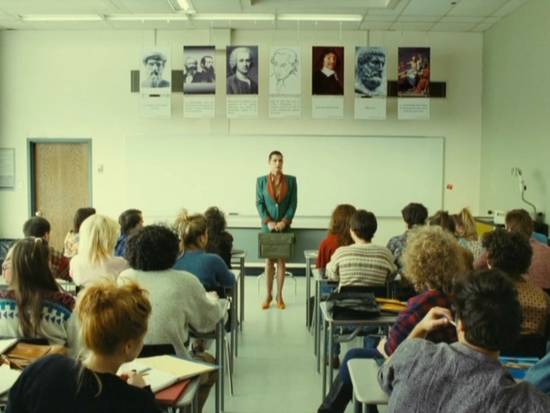
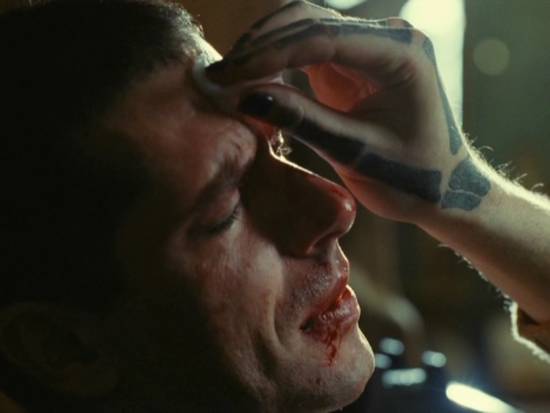
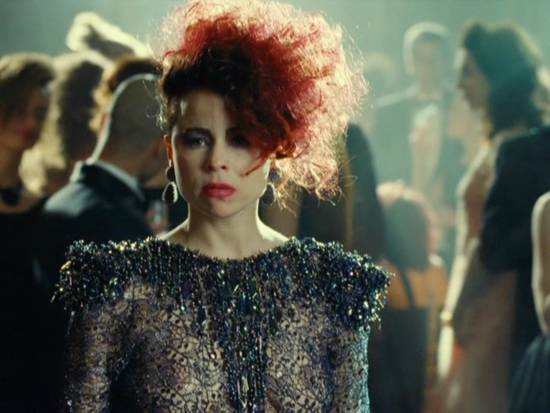
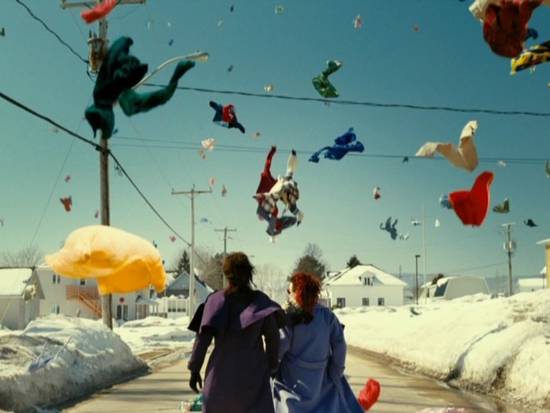
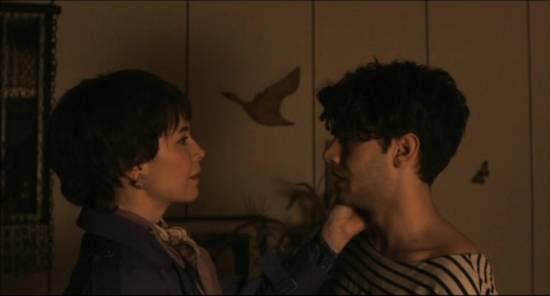
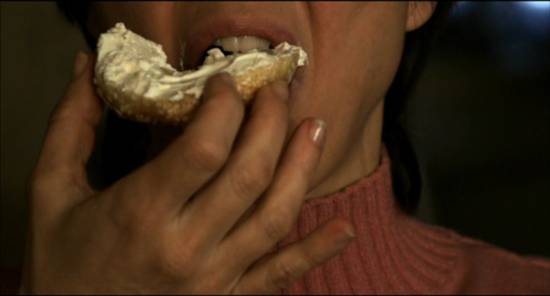
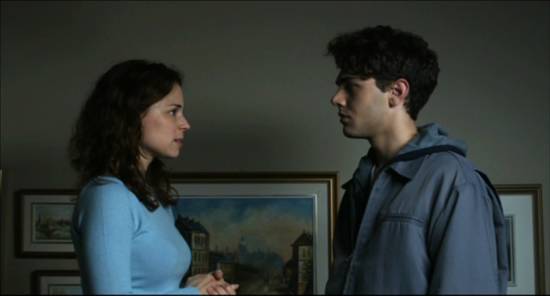
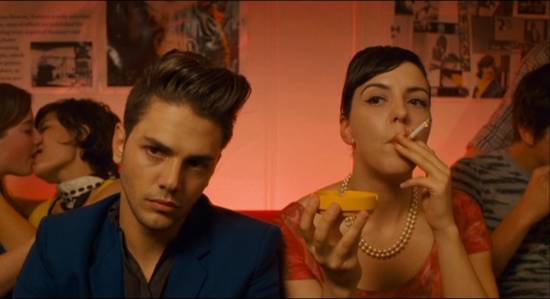
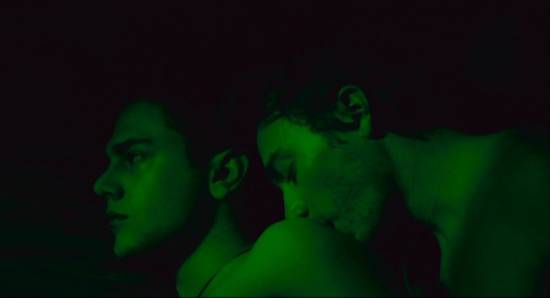
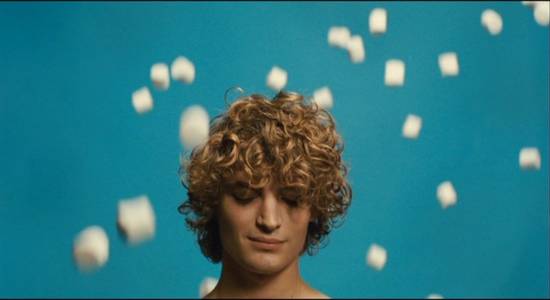
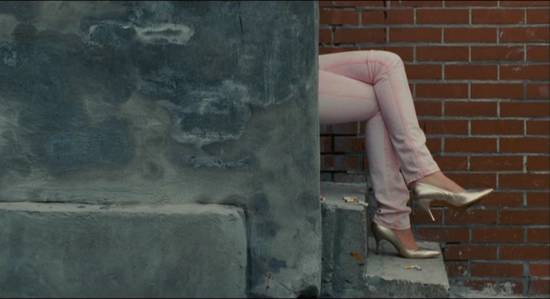
Your Opinions and Comments
Be the first to post a comment!